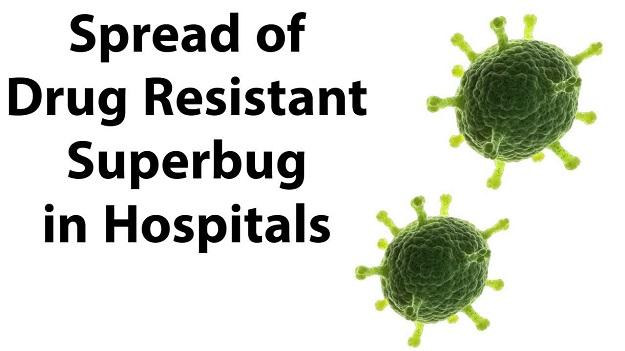Table of Contents
-
- A superbug resistant to all known antibiotics that can cause “severe” infections or even death is spreading undetected through hospital wards across the world
- Superbugs” is a term used to describe strains of bacteria that are resistant to the majority of antibiotics commonly used today.
- Antibiotic resistance is a naturally occurring phenomenon that can be slowed, but not stopped. Over time, bacteria adapt to the drugs that are designed to kill them and change to ensure their survival.
- Methicillin-resistant Staphylococcus aureus (MRSA) is an infection caused by a type of Staphylococcus, or staph, bacteria that’s resistant to many different antibiotics.

- These bacteria naturally live in the nose and on the skin and generally don’t cause any harm. However, when they begin to multiply uncontrollably, a MRSA infection can occur. These infections typically occur when there’s a cut or break in your skin.
- Another Australian study, published last month, suggested some hospital superbugs are growing increasingly tolerant to alcohol-based disinfectants found in handwashes and sanitisers used on hospital wards
- Many of the most powerful antibiotics are extremely expensive and even toxic,
- the practice of using multiple drugs at once to prevent resistance may not be working.
- The researchers said they believe the superbug is spreading rapidly due to the particularly high use of antibiotics in intensive care units, where patients are sickest and strong drugs are prescribed as routine.
- use of more and more antibiotics is driving more drug-resistant bacteria.
- With all bacteria in a hospital environment we are driving more resistant strains and there’s no doubt that antibiotic resistance is one of the biggest dangers to hospital care worldwide.
Certain actions may accelerate the emergence and spread of antibiotic-resistant bacteria, such as:
- Using or misusing antibiotics
- Having poor infection prevention and control practices
- Living or working in unsanitary conditions
To protect yourself from harmful bacteria, wash your hands often with soap and water, or use an alcohol-based hand sanitizer.
- Healthy lifestyle habits, such as eating a proper diet, proper food handling, getting enough exercise and establishing good sleeping patterns, also can minimize the risk of illness.
You can also help tackle antibiotic resistance by:
- Using antibiotics as directed and only when needed
- Completing the full treatment course, even if you feel better
- Never sharing antibiotics with others
- Never using leftover prescriptions






















 WhatsApp
WhatsApp